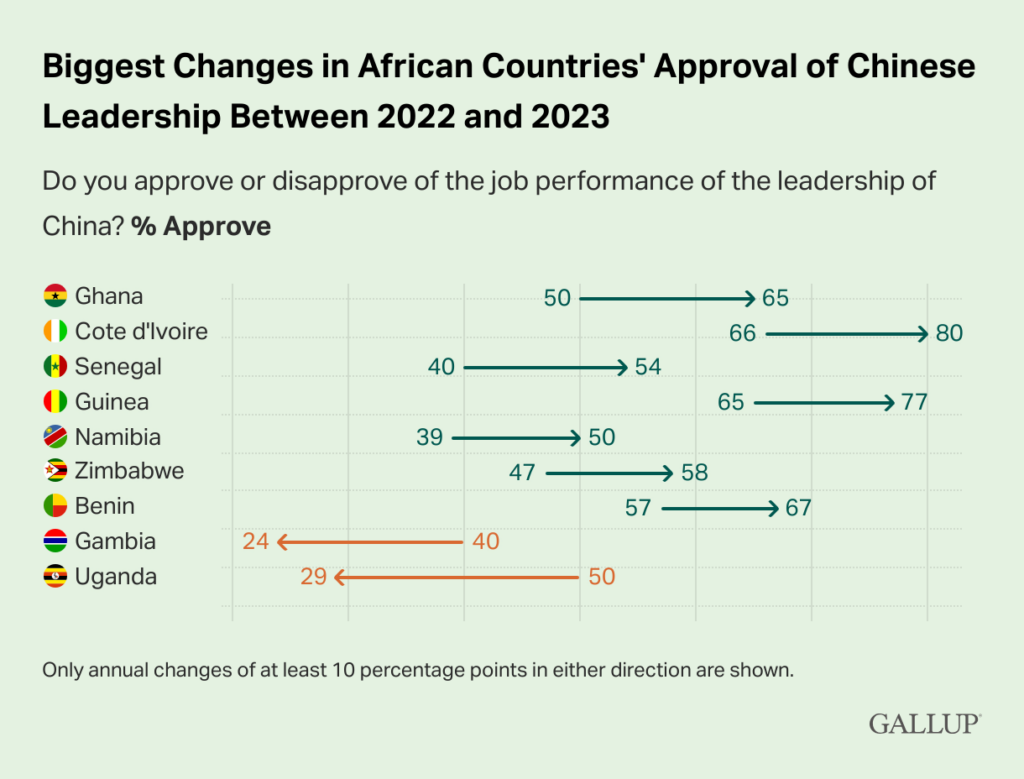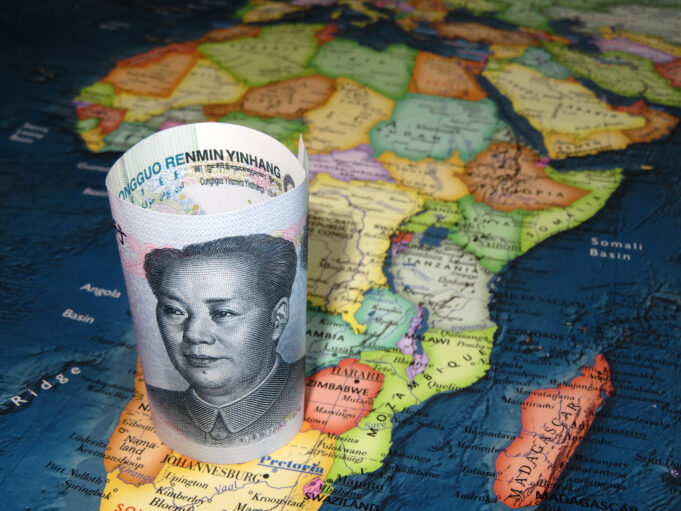Western powers, mainly the U.S., are seemingly hell bent on reducing China’s global economic footprint through increasing tariffs and sanctions. It is against this backdrop that scholars and policy experts from 50 nation states in Africa and China recently jointly released the Dar es Salaam Consensus at the 13th Meeting of the China-Africa Think Tank’s Forum in Tanzania’s port city of Dar es Salaam. The Consensus provided a policy dialogue platform for deepening global development cooperation, reported the chinadaily.com.cn

That Africa and China are engaged in “a new development stage” is indicative of the need to create more opportunities for the continent outside of the purview of the Global North. “For instance, China has developed more than 100,000 kilometers (over 62,137.000 miles) of roads, 10,000 km (over 6,213 miles) of railway, 1,000 bridges, approximately 100 ports, and several energy facilities in Africa, the China Daily reported. “These infrastructure expansions continue to usher in a new era of connectivity and accessibility across the continent, making Africa a fulcrum and frontier of development. Indeed, the Dar es Salaam Consensus has rekindled the Africa rising narrative,” the outlet continued.
Add to that an increasing number of Chinese-based colleges and universities drawing students from partner regions in Africa with science-focused programs.
Samson Mofolo is one of 20 Africans completing a master’s in agriculture at the China Agriculture University (CAU) in Beijing. Before arriving in China, he was working for the Ministry of Agriculture in Malawi, which sends several employees to the university every year. “I spent the first six months in Beijing learning theory,” he explained, “but after, I moved to the countryside to live and study alongside local farmers,” reported the Asia-Pacific current affairs magazine, thediplomat.com.
The CAU appears to be a growing trend that first emerged in 2014 after the Chinese Communist Party first announced its Belt and Road (development) Initiative. The past 10 years have seen a rapid growth of international students coming to China, particularly from partner regions such as Africa and Southeast Asia. According to The Diplomat, “The continent of Africa has seen a substantial increase, with over 80,000 students in China in 2018, increasing by 60 percent in just three years.”
The China Daily reported that Dennis Munene, director of research and executive director of the China-Africa Center at the Africa Policy Institute, stated, “The Dar es Salaam Consensus … breaks the myth that modernization equals Westernization. For China, the path to modernization for both civilizations is anchored on the principles of mutual respect, solidarity, win-win cooperation, openness and common prosperity. As a breath of fresh air, the Dar es Salaam Consensus is advocating for reform of the international financial system to bridge the development gap and ensure countries in the Global South have the same opportunities as those in the Global North.”
In South Africa (SA), China food exports are becoming a way of reducing reliance on the U.S. and Australia. Already a supplier of metals and minerals, SA’s agricultural sector could benefit from a strong demand in China.

Obviously, China has taken advantage of its growing BRICS relationship with Global South countries, including South Africa. China is SA’s number one source for metals such as gold, diamonds and platinum. “Now Beijing is opening up to more agricultural exports as it moves to reduce its dependency on Global North countries,” reported the South China Morning Post.
Before the year’s end South Africa is scheduled to start exporting avocados after the two countries signed a deal at the BRICS Summit in Johannesburg last year.
South Africa will become the third country on the continent after Kenya and Tanzania to export avocados to China. Other agriculture products include rooibos tea and aloe gel, already popular in China.
Lauren Johnston, an associate professor at the University of Sydney’s China Studies Center, said the initial focus was expected to be on increasing exports of products for which there is demand, such as chilies, avocados and citrus fruits. China is also reportedly assisting African countries improve productivity to help boost rural incomes, employment and food security.
Showing how China’s African relationship is reflected in the polls, a recent Gallup report shows the United States is losing its place to China as the most influential global power in Africa. In an article titled, “U.S. Loses Soft Power Edge in Africa,” published April 26 on news.gallup.com, it states: “The United States lost its place as the most influential global power in Africa last year as its star status dimmed and other countries—China in particular—gained fans.”
The article stated that a new Gallup report shows median approval ratings of Washington—indicative of the country’s soft power—slipped from 59 percent in 2022 to 56 percent in 2023. “Of the four global powers asked about, the U.S. was the only one not to see its image improve across Africa in 2023,” however, China’s approval in the region rose six percentage points, from 52 percent in 2022 to 58 percent in 2023, two points ahead of the U.S., the Gallup article noted. Follow @JehronMuhammad on X, formerly Twitter













